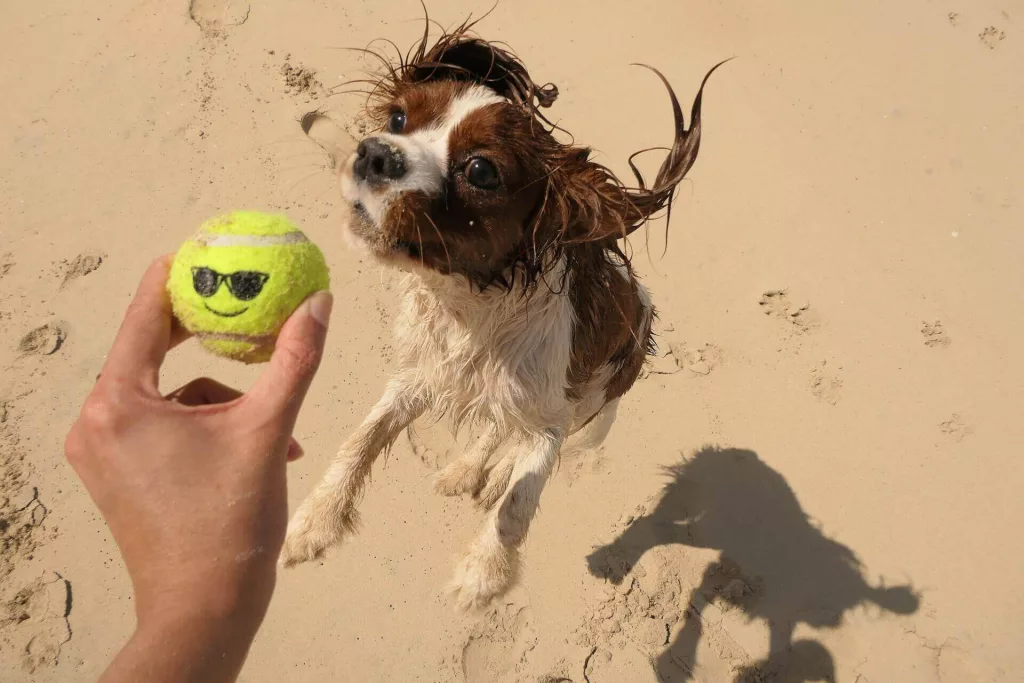Bringing a new Cavalier King Charles Spaniel puppy into your home brings with it the wonderful opportunity to foster a happy and harmonious relationship through proper training. The kind and affectionate behavior of these adorable dogs is praised.However, just like any breed, they need guidance to develop into well-mannered and balanced companions. The practical Cavalier king charles Spaniel training Tips that is the secret to building a solid and enduring relationship with your cherished canine friend will be covered in this article.
Table of Contents
Understanding the Breed
The Gentle and Lively Nature of Cavaliers
Cavalier King Charles Spaniels are renowned for their gentle and lively nature. They enjoy human company and are eager to please. To customize your training program, it is essential to understand their breed-specific qualities.
The Importance of Positive Reinforcement
Positive reinforcement is a cornerstone of Cavalier training. These dogs are respond remarkably well to praise, treats, and rewards. Use these to your advantage to encourage desired behaviors.
Cavalier king charles Spaniel training tips Essentials
Start Early: Socialization
Begin socializing your Cavalier puppy from a young age. Expose them to various people, dogs, and environments to ensure they grow up to be confident and well-mannered companions.
Basic Commands: Sit, Stay, Come
Teach basic commands like “sit,” “stay,” and “come” using positive reinforcement. Keep training sessions short and engaging to hold your puppy’s attention.
Crate Training for Security
Introduce crate training as a safe haven for your pup. To prevent separation anxiety, make the crate cozy and relate it with happy events.
Addressing Common Challenges
House training Made Easy
House training a Cavalier requires patience. Establish a routine, take them out frequently, and reward successful outdoor trips.
Curbing Excessive Barking
Cavaliers might bark more than you expect. Identify triggers and use commands to teach them when to be quiet. Avoid scolding, as it can lead to anxiety.
Nipping and Chewing Behavior
Puppies explore the world with their mouths, but nipping and chewing can become issues. Substitute appropriate toys and redirect their attention to discourage unwanted chewing.
Cavalier king charles Spaniel training tips Techniques
Leash Training for Walks
Teach your Cavalier to walk on a leash without pulling. Use treats and positive reinforcement to make walks an enjoyable experience for both of you.
Advanced Commands: Shake, Lie Down, Roll Over
Once the basics are mastered, move on to advanced commands like “shake,” “lie down,” and “roll over.” Keep training fun and interactive.
Building a Strong Bond
Quality Time and Affection
Cavaliers thrive on affection. Spend quality time cuddling, playing, and bonding with your furry companion.
Consistency is Key
Training must be done consistently. Use the same cues and rewards to avoid confusing your dog and reinforce positive behaviors.
The Bottom Line
Overall, Cavalier King Charles Spaniel training tips is a Very good feel that develops your bond with your pet. As you grasp their natural inclinations, make use of positive encouragement, and apply successful training methods, you pave the way for your beloved pet to mature into a content and well-mannered family member.
FAQs
- How often should I train my Cavalier puppy?
Cavalier King Charles Spaniel training tip sessions should be kept short and frequent, ideally 10-15 minutes, a few times a day. Cavaliers have shorter attention spans, so consistency is key. - Can I train my older Cavalier new tricks?
Yes, you can! While it might take a bit more patience, Cavaliers are intelligent and can learn new tricks and commands even in their later years. - What if my Cavalier is stubborn during training?
Cavaliers can be sensitive, so avoid harsh training methods. If they’re being stubborn, take a step back and assess whether the training environment is conducive to learning. - How do I stop my Cavalier from jumping on guests?
Teach your Cavalier the “off” command and reward them when they keep all four paws on the ground. Consistency and positive reinforcement will help break this habit. - Is professional training necessary for Cavaliers?
While professional training can be beneficial, many Cavaliers thrive with consistent at-home training. However, if you’re facing challenges you can’t overcome, seeking professional help is a good option.
